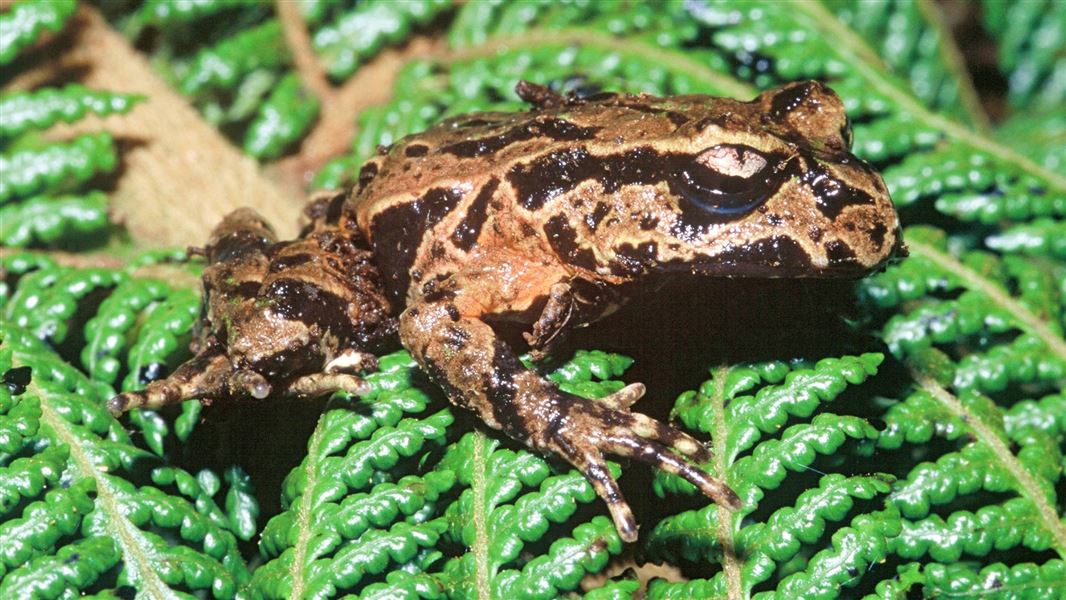Archived content: This media release was accurate on the date of publication.
Date: 29 April 2021
DOC carried out a predator control operation in the southern Coromandel forest in November 2020, using aerially applied 1080 to target rats, possums and stoats. These introduced pest species impact on native bird, bat and plant species – as well as the threatened native Archey’s and Hochstetter’s frogs.
Biodiversity Ranger Leon Pickering says predator control in the southern Coromandel forest is part of long-term conservation effort in the area. As well as the Archey’s and Hochstetter’s frogs, the southern Coromandel Forest is also habitat for Coromandel brown kiwi – the rarest of the North Island brown kiwi – and long-tailed bats, which have been seen in the southern Coromandel area.
The southern Coromandel forest is also home to a number of rare or significant plant and tree species, including as significant kauri populations and below ground, the parasitic Pua o te reinga/dactylanthus (Dactylanthus taylorii), the nationally vulnerable dwarf green orchid.
“By keeping predator levels as low as possible, we’re protecting these important species for now and into the future,” he says.
Leon Pickering says monitoring carried out after the operation assessed the “catch” in a total of 200 traps over the course of three fine nights in summer. The monitoring was carried out by independent contractors.
“For this operation, our target was 2% - that means we wanted not more than four of these 200 traps to have caught a possum,” he says.
“Our monitoring discovered 200 empty traps – a result better than we had hoped for.
“It’s a clear indication our operation was a success, particularly given pre-operation monitoring revealed predators in 16.2% of traps in that area.
“We’re very pleased with this result and we do want to thank the wider community for following our advice on how to responsibly use this forest area immediately after our operation concluded.”
DOC’s aerial 1080 predator control operations – including the recent southern Coromandel operation - are carried out as part of its nationwide Tiakina Ngā Manu programme, which focusses on protection of New Zealand’s indigenous forest wildlife.
Contact
For media enquiries contact:
Email: media@doc.govt.nz
